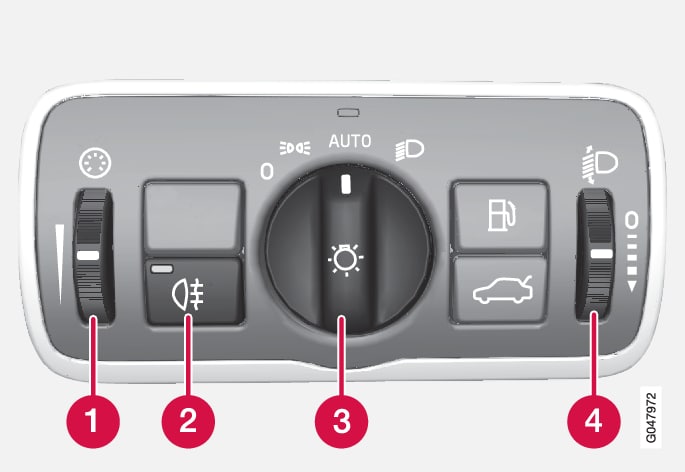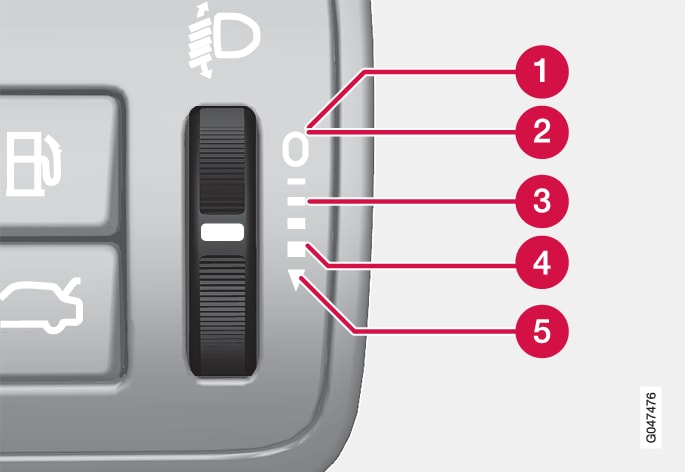
Knob positions
Note
| Position | Specification |
|---|---|
 | Daytime running lights2 when the car's electrical system is in key position II or the engine is running. Main beam flash can be used. |
 | Daytime running lights, position lamps rear and side marker lamps when the car's electrical system is in key position II or the engine is running. Position lamps/side marker lamps when the car is parked3. Main beam flash can be used. |
 | Daytime running lights, position lamps rear and side marker lamps in daylight when the car's electrical system is in key position II or the engine is running. Dipped beam and position lamps/side marker lamps in weak daylight or darkness, or when the rear fog lamp or windscreen wipers with continuous wiping are activated. The tunnel detection* function is activated. The Active main beam* function can be used. Main beam can be activated when dipped beam is switched on. Main beam flash can be used. |
 | Dipped beam and position lamps/side marker lamps. Main beam can be activated. Main beam flash can be used. |
Volvo recommends that  mode is used when the car is driven.
mode is used when the car is driven.
Warning
The car's audio system is not able to determine when daylight is too weak or sufficiently strong, e.g. in fog and rain, in all situations.
The driver is always responsible for ensuring that the car is driven with a beam pattern suitable for the traffic situation and in accordance with applicable traffic regulations.
Display and instrument lighting
Different display and instrument lighting is switched on depending on key position; see Key positions - functions at different levels.
The display lighting is automatically subdued in darkness - the sensitivity is set with the thumbwheel.
The intensity of the instrument lighting is adjusted with the thumbwheel.
Headlamp levelling
The load in the car changes the vertical alignment of the headlamp beam, which could dazzle oncoming motorists. Avoid this by adjusting the height of the beam. Lower the beam if the car is heavily laden.

 Only driver
Only driver Driver and passenger in the front passenger seat
Driver and passenger in the front passenger seat Occupants in all seats
Occupants in all seats Occupants in all seats and maximum load in the cargo area
Occupants in all seats and maximum load in the cargo area The driver and maximum load in the cargo area
The driver and maximum load in the cargo area
Cars with active Xenon headlamps* have automatic headlamp levelling and are therefore not equipped with the thumbwheel.